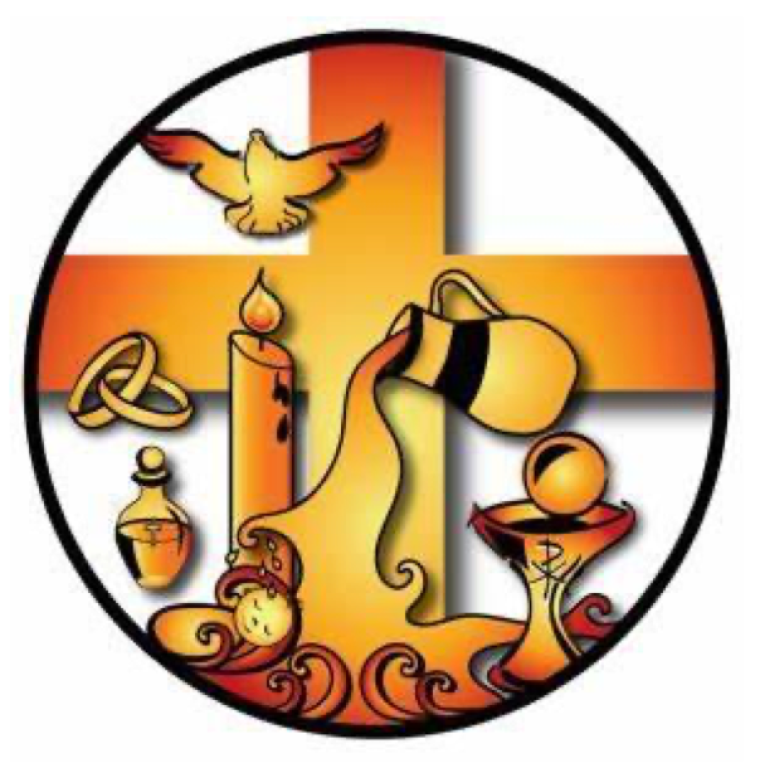
Anointing of the Sick
Understanding the Sacrament
The Catechism of the Catholic Church’s section on the Anointing of the Sick defines the purpose of the sacrament as “the conferral of a special grace on the Christian experiencing the difficulties inherent in the condition of grave illness or old age.” (Catechism, 1527)
In his Gospel Saint Mark (6:12-13) gives us an indication of this sacrament of the sick when he tells us that the apostles, going forth, “preached that men should repent, and they cast out many devils, and anointed with oil many sick people, and healed them.”
However, the classical description which the Bible gives of the sacrament of Anointing of the Sick is found in the Epistle of Saint James: “Is anyone among you sick? Let him bring in the presbyters [priests] of the Church, and let them pray over him, anointing him with oil in the name of the Lord. And the prayer of faith will save the sick man, and the Lord will raise him up, and if he be in sins, they shall be forgiven him.” (James 5:14-15)
Oil – Graces – Sacrament of Reconciliation – Holy Communion
The oil used in administering the sacrament of Anointing of the Sick is called Oil of the Sick. It is one of the three Holy oils blessed by the bishop of the diocese at his cathedral on Holy Thursday morning, the other two Holy Oils being Holy Chrism and the Oil of Catechumens, which is used in Baptism. Oil of the Sick is pure olive oil—nothing being added except the blessing of the bishop. Its appropriateness as part of the outward sign of Anointing of the Sick is evident from the healing and strengthening effects which are characteristic of olive oil.
The essence of the sacrament lies in the actual anointing and the short prayer which accompanies the anointing. In giving the sacrament, the priest anoints the sick person on the forehead and hands. During this anointing, the priest says: “Through this holy anointing may the Lord in his love and mercy help you with the grace of the Holy Spirit. May the Lord who frees you from sin save you and raise you up.”
In common with all the sacraments, Anointing of the Sick confers sanctifying grace. It is an increase in sanctifying grace that Anointing of the Sick gives, since it presupposes that the recipient already is free from mortal sin. Thus, there is intensified in the soul that supernatural life, that oneness with God, which is the source of all spiritual strength as it is also the measure of our capacity for the happiness of heaven.
Besides this increase in sanctifying grace, Anointing of the Sick gives its own special sacramental grace. The primary purpose of the special grace of Anointing of the Sick is to comfort and to strengthen the soul of the sick person. The effects of anointing graces yield:
o Quiets anxiety and dissipates fear.
o Enables the sick person to embrace God’s will and to face the possibility of death without apprehension.
o Gives the soul the strength to face and conquer whatever temptations to doubt, despondency, or even despair may mark Satan’s last effort to seize this soul for himself.
Since Penance (Confession) is the sacrament by which God intends our mortal sins to be forgiven, a sick person who has mortal sins to confess must receive the sacrament of Penance before he receives the sacrament of Anointing of the Sick.
However, it is a comfort to know that Anointing of the Sick does forgive mortal sin also if the critically ill person is unable to receive the sacrament of Penance. This could happen, for example, if Anointing of the Sick were administered to an unconscious person who had made an act of imperfect contrition for his mortal sins before losing consciousness.
Jesus came to heal the whole person, body, and soul. In the Church's Sacrament of Anointing of the Sick, through the ministry of the priest, it is Jesus who touches the sick to heal them from sin – and sometimes even from physical ailment. His cures were signs of the arrival of the Kingdom of God. The core message of his healing tells us of his plan to conquer sin and death by his dying and rising.
The Rite of Anointing tells us there is no need to wait until a person is at the point of death to receive the Sacrament. A careful judgment about the serious nature of the illness is sufficient. When the Sacrament of Anointing of the Sick is given, the hoped-for effect is that, if it be God's will, the person be physically healed of illness. But even if there is no physical healing, the primary effect of the Sacrament is a spiritual healing by which the sick person receives the Holy Spirit's gift of peace and courage to deal with the difficulties that accompany serious illness or the frailty of old age.
Circumstances to contact the Parish Office at (817) 473-6709 and request as follow:
Sacrament of Anointing of the Sick (Extreme Unction) – All those who are baptized Catholics are facing serious and on-going illness are encouraged to receive the sacrament for healing of mind and body. The Canon Law states (§1004-1007), “the anointing of the sick can be administered to a member of the faithful having reached the use of reason, begins to be in danger due to sickness or old age. It can be repeated if the sick person, having recovered, again becomes gravely ill or in the condition becomes more grave during the same illness. The anointing of the sick is not to be
conferred upon those who persevere obstinately in manifest grave sin.”
Viaticum – All as in #1 along with confession and Holy Communion.
updated 5/2020



